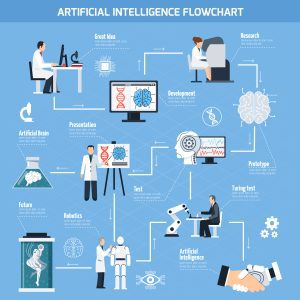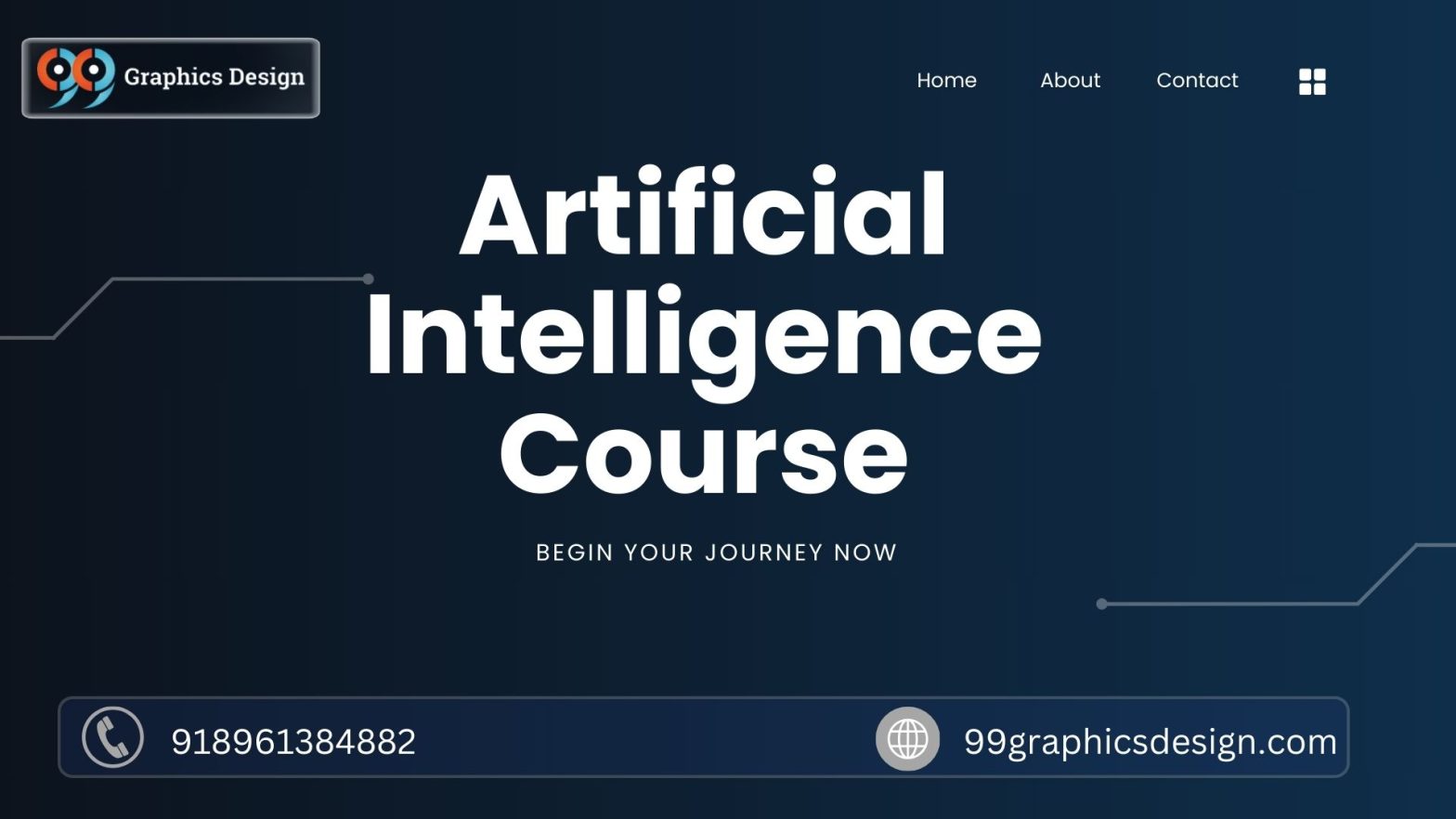Artificial Intelligence course | Enroll now
Artificial Intelligence course
Currently AI is a quickly developing technology which can significantly change different fields as well as people’s lives. If this is an appealing field that you wish to venture into, then an artificial intelligence course will form a good foundation. This guide will help you understand what this artificial intelligence course entails to, its curriculum, important concepts that shall be tackled, and how to benefit from your learning.

What is Artificial Intelligence?
Artificial intelligence is, essentially the concept of developing intelligent machines with the ability of making decisions and learning in the way that a human being does, employing technologies, including machine learning, natural language processing and robotics. Artificial Intelligence refers to a method to make the machines intelligent, so these machines can do the tasks that require human intelligence to do such as: interpreting or recognizing the language, patterns, and make decisions.
Why Take an Artificial Intelligence Course?
Taking an artificial intelligence course can provide numerous benefits:
-
Career Opportunities:
AI skills are in high demand across various sectors, including healthcare, finance, and technology.
-
Skill Development:
You will learn essential programming languages, algorithms, and data analysis techniques.
-
Understanding AI Applications:
Acquire more profound knowledge of the application of technology in the realization of AI in the aspects of self-driving cars and; voice-activated home assistants.
Organize communications with people who are interested in the same topic as well as professionals who work in the sphere of networking.
Overview of an AI Course

In an intelligence course you can expect to learn about a variety of subjects. Here’s a general outline of what you might find in the artificial intelligence course syllabus:
-
Introduction to AI
This part provides an overview of what AI is, its history, its classification and its uses. You will learn about the differences between narrow AI (designed for specific tasks) and general AI (which can perform any intellectual task a human can do).
-
AI Programming
One cannot talk of artificial intelligence without talking of programming. Majority of the courses are based on the use of Python language that is commonly used in the development of AI systems. Here, you will find out about algorithms, data handling, and libraries such as Tensor Flow as well as Keras in machine learning.
-
Machine Learning
These algorithms can then be used to make decisions or predictions based on that training data. Machine learning is used in various fields, including finance, healthcare, and e-commerce. You will explore different types of machine learning, including supervised, unsupervised, and reinforcement learning.
-
Deep Learning
In the realm of machine learning deep learning stands out as a niche field that leverages networks to examine aspects of data. In this part we will delve into how learning modelers developed and enhanced.
-
Natural Language Processing (NLP)
NLP uses algorithms to understand natural language, process it, and use it to perform tasks. You will learn how to process and analyze large amounts of natural language data.
-
AI Ethics and Safety
AI technology is involved in decision making processes emphasizing the importance of considerations.
It is important for agencies to make rules and also to check it properly before using any AI. The purpose of this section is to explain privacy and transparency concerns related to AI
-
Real-World Applications of AI
You will visit various case studies demonstrating how AI is used in different industries, such as healthcare, finance, and entertainment & business.
How to Choose the Right Artificial Intelligence Course
When selecting an artificial intelligence course, consider the following factors:
Course Content:
Ensure the syllabus covers the topics you are interested in.
Level of Difficulty:
Choose a course that matches your current skill level, whether you are a beginner or have some experience.
Format:
Decide if you prefer online courses, in-person classes, or a hybrid approach.
Instructor Expertise:
Research the instructors’ backgrounds to ensure they have relevant experience in AI.
Reviews and Ratings:
Look for feedback from previous students to gauge the course’s effectiveness.
Tips for Success in Your Artificial Intelligence Course
- Make sure to focus on the task and stay motivated. Don’t give up easily. Query for help if you need it. Consistency is the only way to become expert AI concepts.
- Engage with Others: Join workshop or online forums to discuss ideas and solve problems collaboratively.
- Work on Projects: Apply what you learn by working on hands-on projects. It will underpin your understanding and help to create your portfolio.
- Utilize Resources: Take advantage of online resources, such as tutorials, videos, and articles, to supplement your learning.
It’s better to be safe than sorry, and query can help make sure that you’re getting the most out of your course.
Conclusion
An artificial intelligence course is an excellent way to start your journey into the world of AI. With the right course, you can gain valuable skills that are in high demand in today’s job market. Whether you are looking to enhance your career or simply explore a new interest, AI offers endless possibilities. Embrace the challenge, stay curious, and enjoy the learning process!
By following the guidelines and tips outlined in this blog, you can maximize your learning experience and pave the way for a successful career in artificial intelligence.
Follow us for more such as valuable content on —


